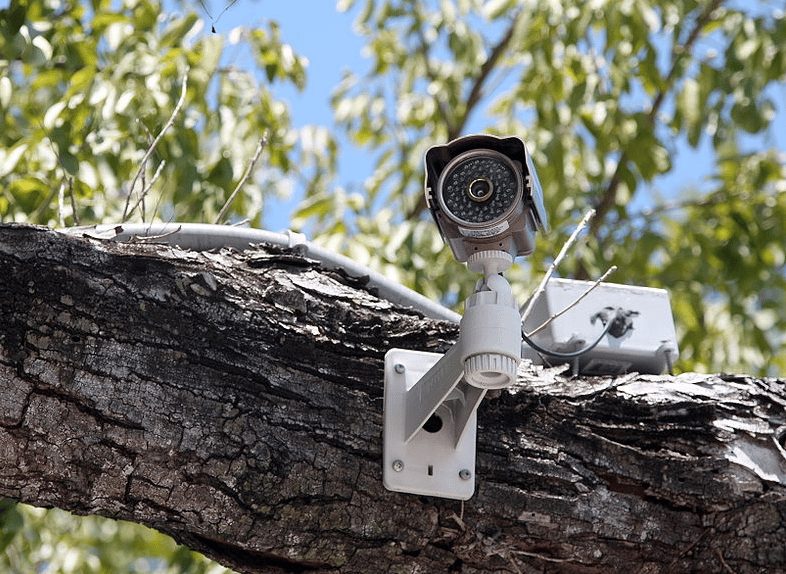Travellers in the rural Eastern Cape may start spotting something usually not associated with the region’s open expanses – high-tech roadside cameras.
Taking positive steps to help fight rural crime, Agri Eastern Cape has begun working with farmers and security service providers to install an advanced camera system to help crack down on criminals.
The Licence Plate Recognition (LPR) camera system has been installed on rural roads across the province, and has already led to the arrest of a number of suspected criminals.
Since its inception last year, the camera system has paid dividends not just for farmers but also for the surrounding rural communities and the police, who make extensive use of the system in investigating crime.
Crime-fighting successes include two farm attack arrests and convictions, 11 arrests for stock theft, as well as arrests for possession of stolen goods, unlicensed firearms, stolen vehicles and even shoplifting.
The LPR project was first implemented in the small farming town of Alexandria after the brutal attack on, and subsequent death of, cattle farmer Riaan Scheepers in November 2017.
In May last year, the Alexandria Agricultural Association initiated the project, erecting the first camera on the R72 entering the town.
Just over a year on, a further 101 installations are now operational in three district municipalities across the province with at least another 29 installations on the cards.
“The way the project works is simple,” explained project coordinator for Agri EC, Brent McNamara.
“Static roadside cameras are used to get a better image of the scene. Multiple cameras are installed on a pole to allow a view in each direction. Infrared illuminators allow the cameras to capture images and video in darkness.
“The LPR cameras read all the licence plates that pass by and the recorded licence plates are referenced against a database of wanted or suspicious vehicles.
“If the vehicle that passed the camera is listed on the database, an immediate alert is sent to the Atlas Security control room. Atlas then notifies the local authorities and the response teams of the alert and in which direction the vehicle is headed and continues to assist in tracking the vehicle as it moves through the network of cameras in the area.”
McNamara said if the licence plate was known, a list of every camera the vehicle had driven past was immediately available, allowing the route to be plotted on a map.
“While it is still very much in its infancy stage, when this project is completed, it will effectively consist of an outer camera cordon capturing all vehicles entering or leaving the target area or towns as well as providing intelligence as to precisely what rural area within the greater area these vehicles are operating in,” said McNamara.
The project now encompasses 13 local municipalities – including Sundays River Valley, Ndlambe, Makana, Raymond Mhlaba, Amahlati and Enoch Mgijima; 19 agricultural association areas and 17 association areas currently not part of the project but who derive partial benefit as suspicious vehicles pass through their areas.
All these cameras are monitored by an identified service provider (Atlas Security in conjunction with local security companies by way of a service level agreement) from a central ops room, which collects the intelligence and interacts with the SAPS at national and local level.
“The project carries the support of the EC Provincial Police Commissioner,” McNamara said, adding that the cameras would eventually be linked to a national system.
The linked cameras provide data, which can be used to detect patterns of movement, times and cross-referenced with past criminal activity and incidents.
“This, we hope, will prevent possible attacks as well as enabling a faster response and intelligence gathering after an incident, leading to an increased arrest and conviction rate.”
McNamara said rural safety committees and cluster committees would meet monthly to evaluate information and analyse intelligence gathered with a view to enabling the effective direction of crime combatting operations by both Farm Watch groups and the SAPS as well as contracted security company patrols.
He said funding was a limiting factor, as costs were currently borne by participating farmers associations.
“Each installation costs about R70 000 and a further R2 000 per month to operate,” McNamara said, adding that total annual 24/7 monitoring fees amounted to R1.75 million.
Agricultural associations raise funding from members, non-members, residents and businesses to install cameras in their own areas at strategic intersections and overview cameras on minor roads.
“Public participation is welcome. The project is operated by a registered Public Benefit Organisation (PB0) and, as such, contributions by donors are tax deductible,” said McNamara.
“While this project is not unique to the Eastern Cape – similar projects exist most other provinces – as a rural road network operated by a single agricultural organisation I think we are the biggest.”
The South African Pork Producers’ Organisation (SAPPO) coordinates industry interventions and collaboratively manages risks in the value chain to enable the sustainability and profitability of pork producers in South Africa.
















